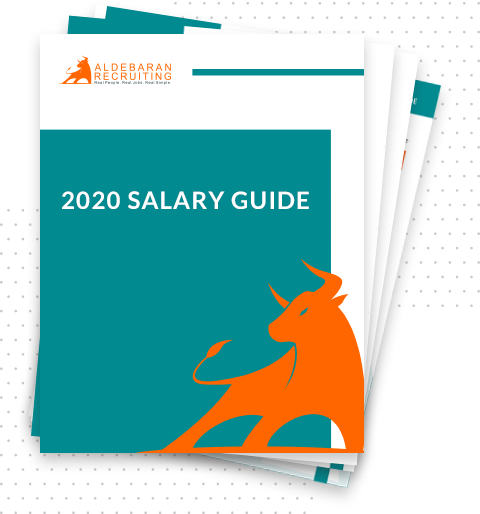It’s critical if you are looking to hire the best talent in the market that you have a solid interview strategy. Your strategy should be designed for you to truly be able to one, determine if the person you’re talking to is the right fit for the position and the role, and two, really sell the potential person on the opportunity of your company.
We’re going to go through the five key pieces you want to make sure are part of your interview strategy. These five pieces aren’t necessarily tied to any part of the interview or stage of the interview process but are more general strategies that you want to make sure you’re employing throughout your interview process where appropriate. Many companies interview process is something that they wing or simply do whatever the hiring managers do. Having a defined and cohesive interview strategy across your company will give you a major competitive edge in hiring and retaining talent.
#5 – BE ORGANIZED, DON’T WING IT!
This leads a little bit into what we just said, but it is so critical you have an organized interview process. That means having the correct systems and structures in place to keep track of candidates, to keep track of their information, and to keep track of feedback, etc. You want to have specific interview questions for specific roles, specific questions that are always asked no matter what the position is, etc. The questions in your interview process need to be laid out and thought of in advance from a strategic perspective, so that you have a clear pathway to hiring the right talent. In other words, don’t wing it! It’s critical that you do the thinking beforehand to ensure that you have an organizational structure that is going to allow you to keep track, organize and powerfully engage with potential candidates.
#4 – BE INTERESTED IN CULTURE
From a culture perspective, it’s critical that throughout the interview process you have a way to one, engage candidates at the culture level and really find out what they’re looking for, what matters to them, what’s important them, etc. You want to make sure you’re hiring people that are going to be a fit for your culture, whatever that might be. You want to make sure they’re going to be a fit for you and you also want to make sure that your company is going to be a fit for them. This is critical for long-term candidate and employee retention. So it’s critical to be engaging candidates with what matters to them, but also making sure you’re sharing and answering any questions about your company’s culture that will really determine if you’re the right fit for them or not. It’s important always to remember that interviews go both ways, some companies look at this too one-sided.
#3 – FIGURE OUT A WAY TO TEST SKILLS
Many interview processes rely too much on asking candidates questions if they can or can’t do something and then taking people at their word. This is the biggest mistake that can be made as many people are very good at interviewing but not necessarily good at doing the job they’re interviewing for. So you have to figure out a way to test skills. This can be done by assigning a project, a case study, asking them to do a presentation for technical roles, and coding and programming projects are extremely useful. So with any role that you have in your company you want to figure out a way to have the candidate actually demonstrate that they can do some aspect or many aspects of the job. This is going to be critical for you to really determine if they have the right kind of skills for your role.
#2 – FIND OUT ABOUT SALARY EARLY ON
Many companies won’t broach salary with a candidate until they’re ready to make them an offer, only to find that there is a huge gap between a candidates expectations and what they’re budgetary constraints are. The negotiation process starts when you first speak with a candidate. You want to find out upfront what the candidates salary expectations are and be very clear with the candidate about what your capabilities are. Throughout the process this is something to check in with. You want to be finding out if the candidate has other offers and get as much information about what the potential salaries on those are offers are, and so on and so forth. Don’t be afraid to be engaged with candidates at the level of money and salary early on and throughout the process. This will mitigate and potentially avoid any surprises when you get to the stage of making an offer. You want making an offer and the negotiation around that offer to be extremely simple and extremely devoid of surprises so that it’s an easy process and it goes the way you want it to go.
#1 – DON’T LEAD THE WITNESS
The questions that you ask candidates in the interview process should not be yes or no questions. Too many interviewers ask yes or no questions about candidates backgrounds and/or give the candidate the answer they want to hear in the question. Something like, “do you have significant experience with digital marketing?” This type of question has the answer in the question and is a yes or no question, so a smart candidate is going to say that they do have that experience and therefore, doesn’t give you a complete answer. So, you want to ask specific questions that tease out a specific kind of response. So instead of the previous question, you would want to ask something like, “tell me about your digital marketing experience.” This is going to force the candidate to dig into their memory bank and their experience bank and give you an answer that is their actual experience. You then can gauge from their answer if they’re experience is a match for what you need. The more detailed and specific you can get with a question the better, as this will tease out what you need. Often times you’ll have to ask for examples of things and this is another important aspect, and is another detail asking for examples.
CONCLUSION
If you take these five tips and put them together as part of your interview strategy, you’re going to have a very powerful edge over many companies out there, as many companies don’t deal with getting this organized. Give yourself that edge and it will pay off in spades. It doesn’t take as much work as it seems like it might, just be sure that you are constantly working on evolving your process.
Need more help on defining your interview process? Go here: https://muse.cm/28O3SBZ
Want to consider us as your recruiter? We would love to work with you! Contact us for an exploratory call!



